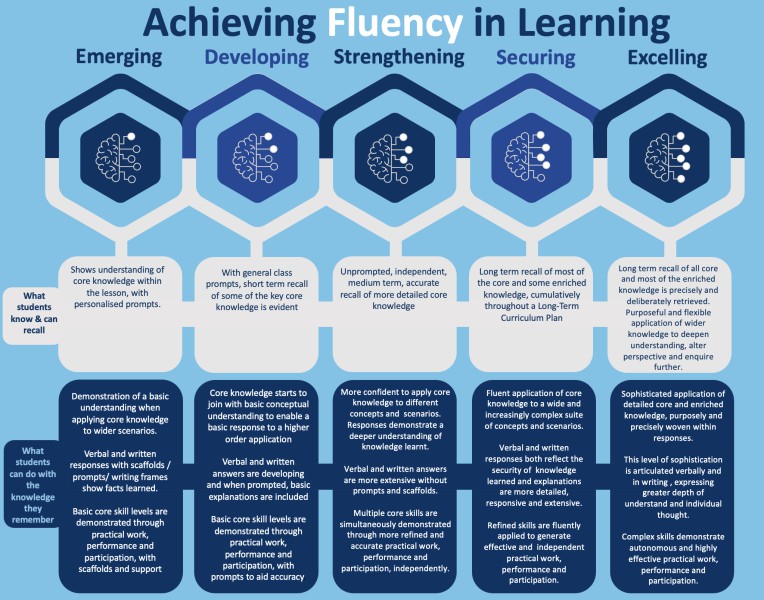Fluency of Learning
What do we mean by Fluency of Learning?
Why do we want our students to build fluency?
Our aim is to ensure that all our students are building fluency of learning throughout there lesson.
Fluent learning is recognisable by its automaticity. It is immediately retrievable and effortless. It requires a minimum of conscious effort and allows the learner to move on to further successful learning.
At Meden School we believe that all children can gain fluent knowledge and skills and it is our job to ensure that they do. Whatever their social background or prior achievement all the children we teach are capable of mastering knowledge and skills through attention, effort and practice.
How do we assess our students’ journey to fluency?
We assess our students’ journey to fluency against the body of knowledge and skills in our Curriculum Journeys. Please refer to our curriculum page for more details.
For some students their bodies of knowledge will be much wider and deeper than others, but our aim is that all our students have a fluent body of knowledge – even if, for a small number of students, this is relatively small.
What does the journey to fluency look like?
It is important that we understand that the journey to fluency refers to the stage of learning and is not a label for the learner.
Any learner starts at the first stage of this journey when they are learning something new, and any learner can acquire fluency through learning routines such as paying attention and deliberate practice.
What are the five stages to fluency at Meden?

Why do we focus on the ‘secure’ stage?
Our aim is for curriculum teams to plan their Curriculum Journeys carefully so that students can build fluency. By paying attention, and through guided practice and teachers’ use of scaffolding and challenge, every student should be able to acquire substantial knowledge of the material they have been taught. It is then through practice tasks and further engagement with independent practice away from lessons that students build their knowledge to a level where they have learned material completely or fluently.
